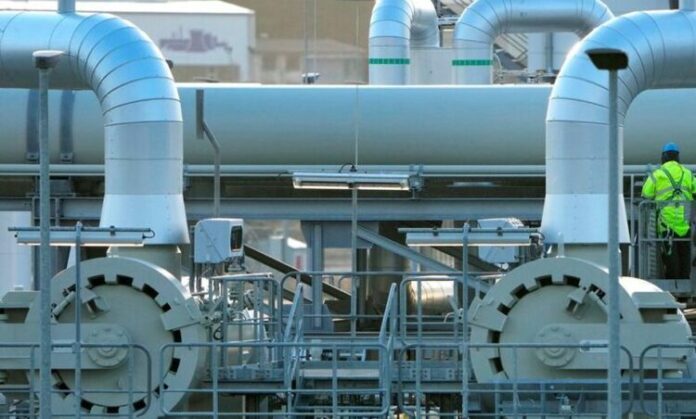
Few energy projects are as contentious as the Nord Stream 2 pipeline, which was effectively killed in the water on Tuesday when Germany’s chancellor paused the clearance process due to the Ukraine situation.
The 1,230-kilometer pipeline was designed to transport massive volumes of natural gas directly from Russia to Europe via Germany, but it has sat idle for more than five months without receiving a single delivery.
For years, politicians, experts, and Europeans have been split over the project, which has been plagued by delays, past US sanctions, and criticism over its influence on the climate problem.
The remark by German Chancellor Olaf Scholz was the biggest yet from the West in reaction to Russia’s military operations in eastern Ukraine.
However, it puts Europe in an awkward situation since Russia could easily shut off the rest of its gas pipelines, leaving millions of Europeans in the dark and freezing. Water heaters, furnaces, stoves, and ovens may all be powered by natural gas.
Germany already obtains Russian gas via Nord Stream 1, a comparable pipeline that goes beneath the Baltic Sea as well. However, as Russia escalated its military activity in Ukraine overnight, pressure on Germany to halt the project increased.
Whether or if Germany abandons Nord Stream 2 in the long run, Russia’s actions in Ukraine have effectively killed the project politically.
Fears that Russia would utilise Nord Stream 2 as a geopolitical tool to further its interests — and expansionism — in Europe are now being confirmed. However, if the weapon is loaded with genuine gas, Europe’s position will be weakened much more.
The Greens are a strong presence in Germany’s new coalition government, which is opposed to the increased reliance on natural gas, a fossil fuel that now contributes more greenhouse gas emissions in the EU than coal, owing to how reliant it has become on what was supposed to be a transitional fuel to renewables.
In the near term, Nord Stream 2 was expected to emit 100 million tonnes of carbon dioxide per year, not to include the inevitable leaks of methane, a greenhouse gas with more than 80 times the warming potential of CO2.
Now is the time for Europe, particularly Germany, to use the chance to shift away from not only Nord Stream 2, but also its rising dependency on fossil gas in general.
Germany is one of the few wealthy countries that rejects nuclear power and is now decommissioning its few reactors. It has grown increasingly reliant on gas without it, and will require a dramatic rethink to accelerate energy output from renewables.
Given the environmental difficulties associated with dealing with nuclear energy’s radioactive waste, nuclear energy’s participation in Europe’s future energy mix has restrictions. Solar, wind, and hydropower, when scaled up quickly, provide energy security as well as climate protection. A simple first step would be to shift subsidies away from fossil fuels and toward renewables.
In the near term, Europe can scramble gas from other nations to deal with the immediate Russian danger — unlikely to be enough to replace Russia, but maybe enough to get by. However, the never-ending problem of climate change will continue to churn, eventually killing more people and costing more money than a military conflict.

















